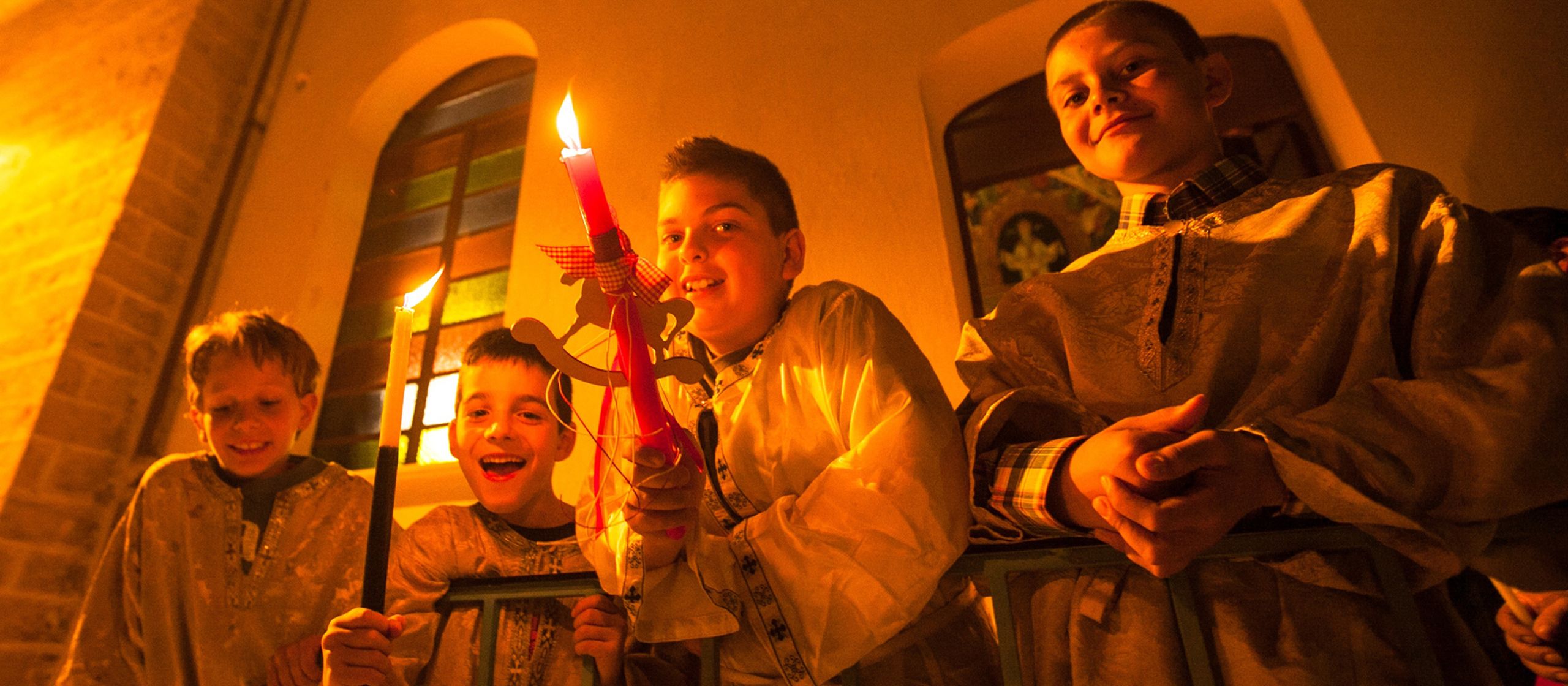Few words
‘Kalo Pascha’ Happy Easter in Cyprus!
Easter Sunday (Orthodox) – 05 / 05 / 2024
Easter time in Cyprus is a wonderful period to be on the island. The spring sunshine ushers in the sprouting of verdant flora and fauna, meadows sprout forth with poppies, golden daisies, and carpets of anemones that signify the arrival of Easter. Pascha (Holy Easter) is the most important celebration in the Orthodox Ecclesiastical calendar.
…
Easter in Cyprus is a joyous time of year. Cypriots welcome strangers with their renowned warmth and friendliness to join in the fun as Eastertime is the largest festive period in the Greek Orthodox calendar year.
Pascha, the most luminous feast of Christianity and the greatest feast of Hellenism and the people of Cyprus, who call it, “Lambri”, “the Bright One” since it shines with the light of.
Resurrection that bathes life and all its facets: morals, customs and tradition. As the Services of Holy Week coincide with Spring, the divine Passions seem to relate to the passions and resurrection of Nature and man. It is, after all, the time to bid farewell to the long and absolute silence of Nature, to the agonising period of gestation in anticipation of welcoming the fruits, the flowers: of orange, pomegranate, rose, yarrow, lilly and the colours.
Everything predisposes the great triumph of life, renewed life, the redemption of the living, the Resurrection of the dead as descriped in the triumphant Paschal hymn.
This is the message of the spiritual extravaganza of these days, from Lazarus’ Saturday until Pascha Sunday. A ritual that narrates the divine Passion and relates to the tribulations of the suffering man, that culminates with Resurrection, depicted in byzantine iconography as the “Descent to Hades” by Christ, where the Resurrected Christ gives His hand to Adam, to raise him up and set him free from the bondage of death.
Pascha, the Majestic Feast in the Heart of Spring “and so shall bloom
the spring of faith” in our hearts
Holy Week
-
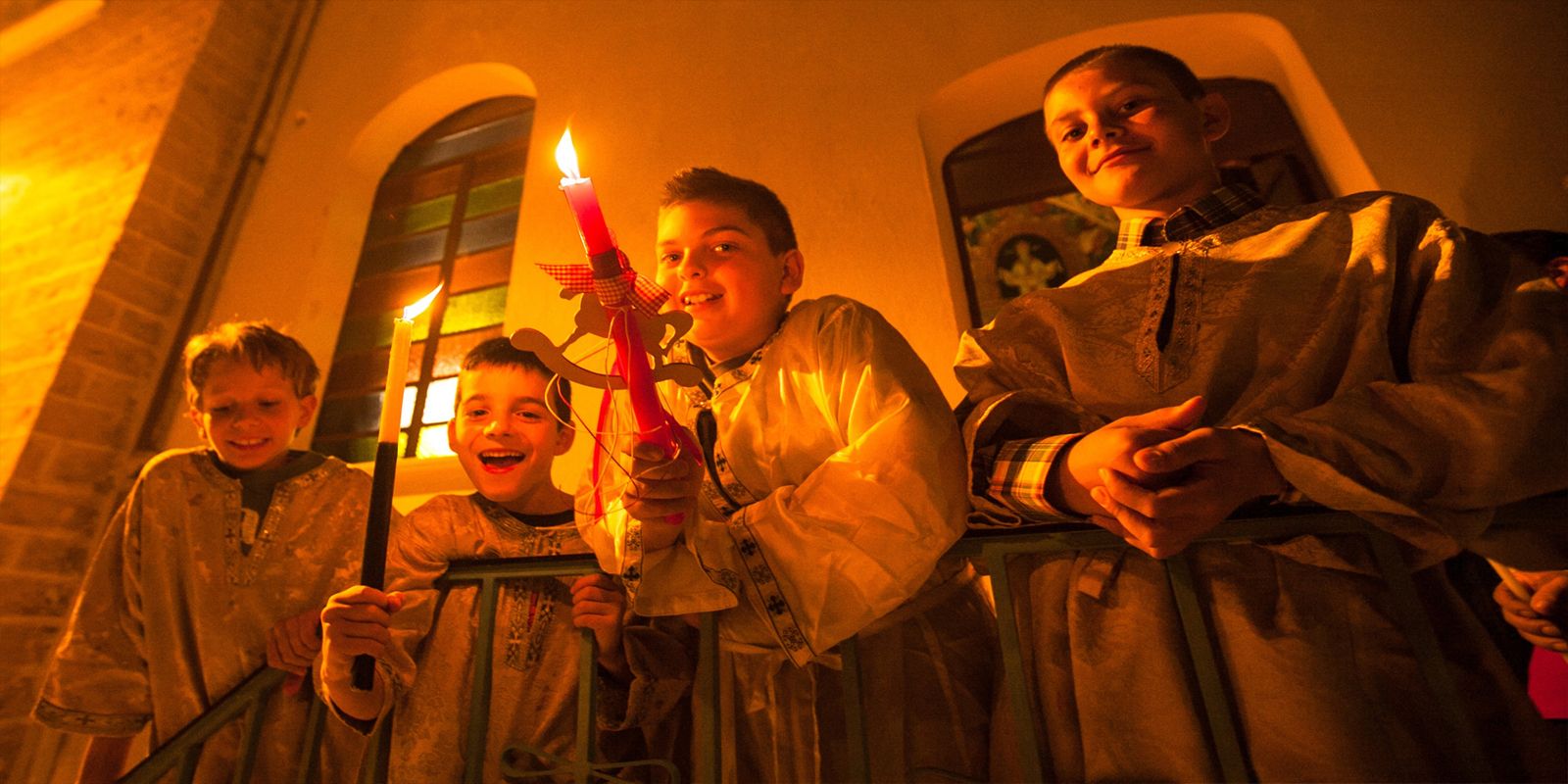
Lazarus Day
& Palm SundayThe path to Pascha begins on Lazarus Saturday. On Palm Sunday in the morning Liturgy, all the faithful take to the church olive branches in remembrance of the olive branches carried by the crowd of Jerusalem during Christ’s welcome to the city. In the evening of Palm Sunday the faithful come to the church to witness the Service of the Bridegroom that initiates the Holy Week. In a solemn atmosphere and after putting out all lights in the church, the icon of Christ comes out, depicting Him wearing a red tunic, a crown of thorns and holding a cane in His tied hands, a unique depiction of Utter Humiliation. -
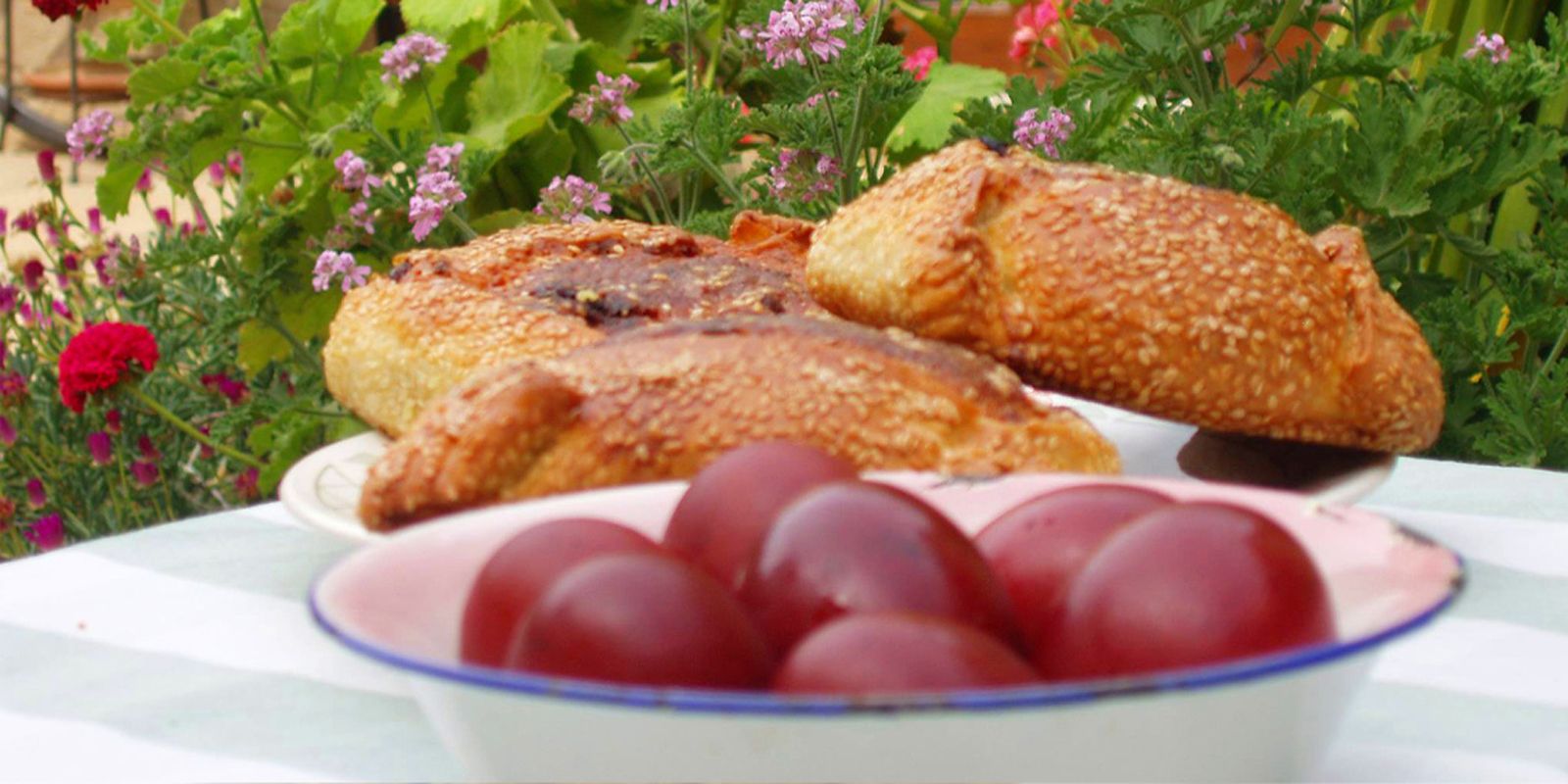
Holy Monday,
H. Tuesday &
H. WednesdayThe next three days, Great and Holy Monday, H. Tuesday and H. Wednesday every morning and evening long Services are celebrated. On Holy Tuesday evening the Troparion written by the nun Agia Cassiane is chanted in all churches for the repented whore who washed with myrrh the feet of Christ. On Holy Wednesday the sacrament of Holy Unction is served. -
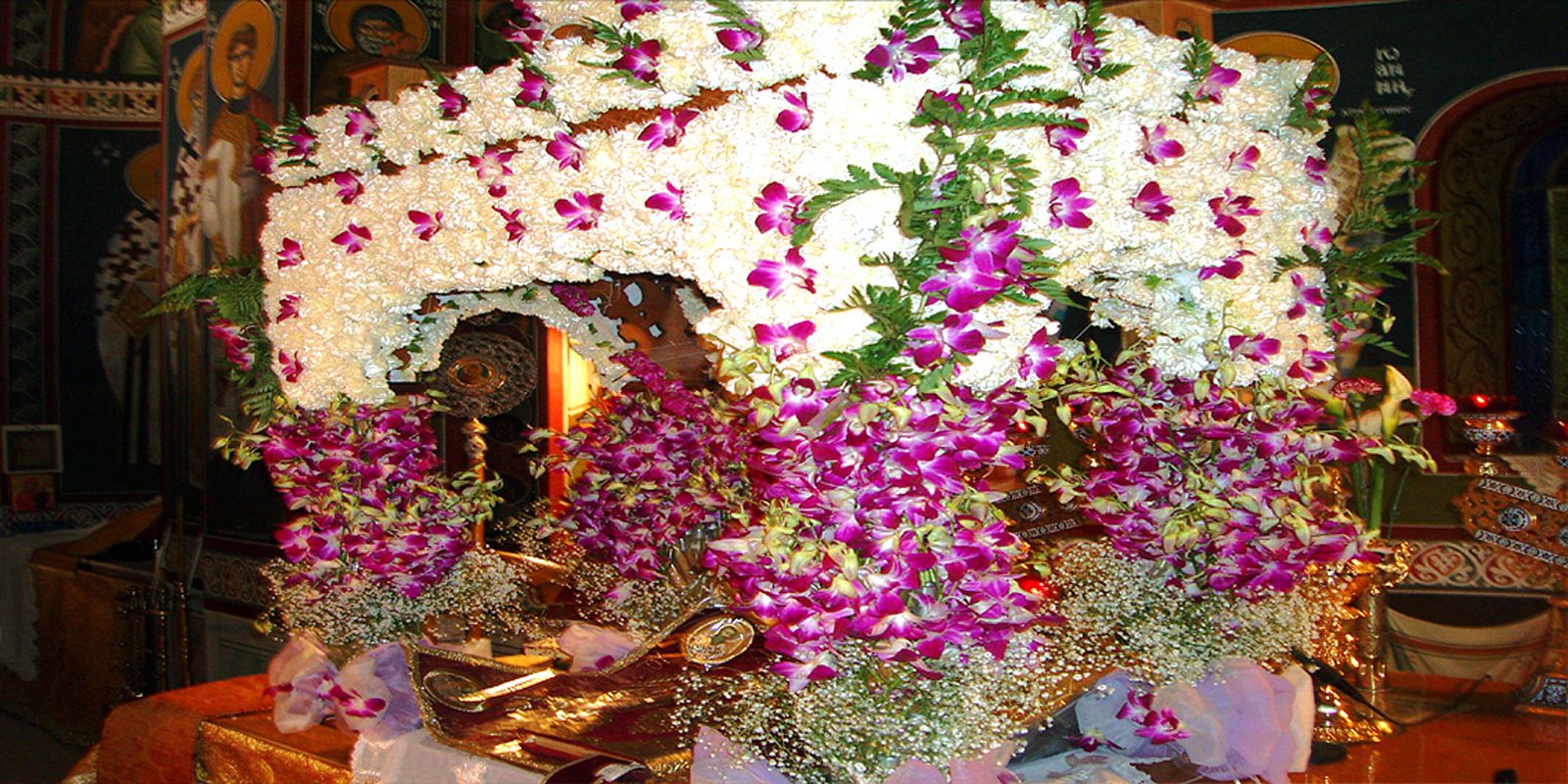
Holy Thursday
& Holy FridayOn Holy Thursday morning, the Holy liturgy in memory of the Last Supper is celebrated. All the housewives clean their homes, prepare the stavrokouloura (cross-shaped buns) and dye their eggs red. In the evening of Holy Thursday the Service of the Passion is chanted, a lengthy Service enacting the Crucifixion of Christ and the twelve Gospels are read out.
-
Read more
On Holy Friday in the morning the Un-nailing takes place, that service during which Joseph from Arimathea and Nicodemus, the nocturnal disciple of Christ, removed His Body from the Cross and laid It in the grave. After this Service, girls in all churches decorate with flowers the Epitaph. This is one of the most beautiful customs in all Cyprus. In the evening, lamentations are chanted (short troparia) to the dead Christ and then the Epitaph is carried in litany through the streets of cities and villages while the church bells toll in a mournful tone.
-
Read more
-
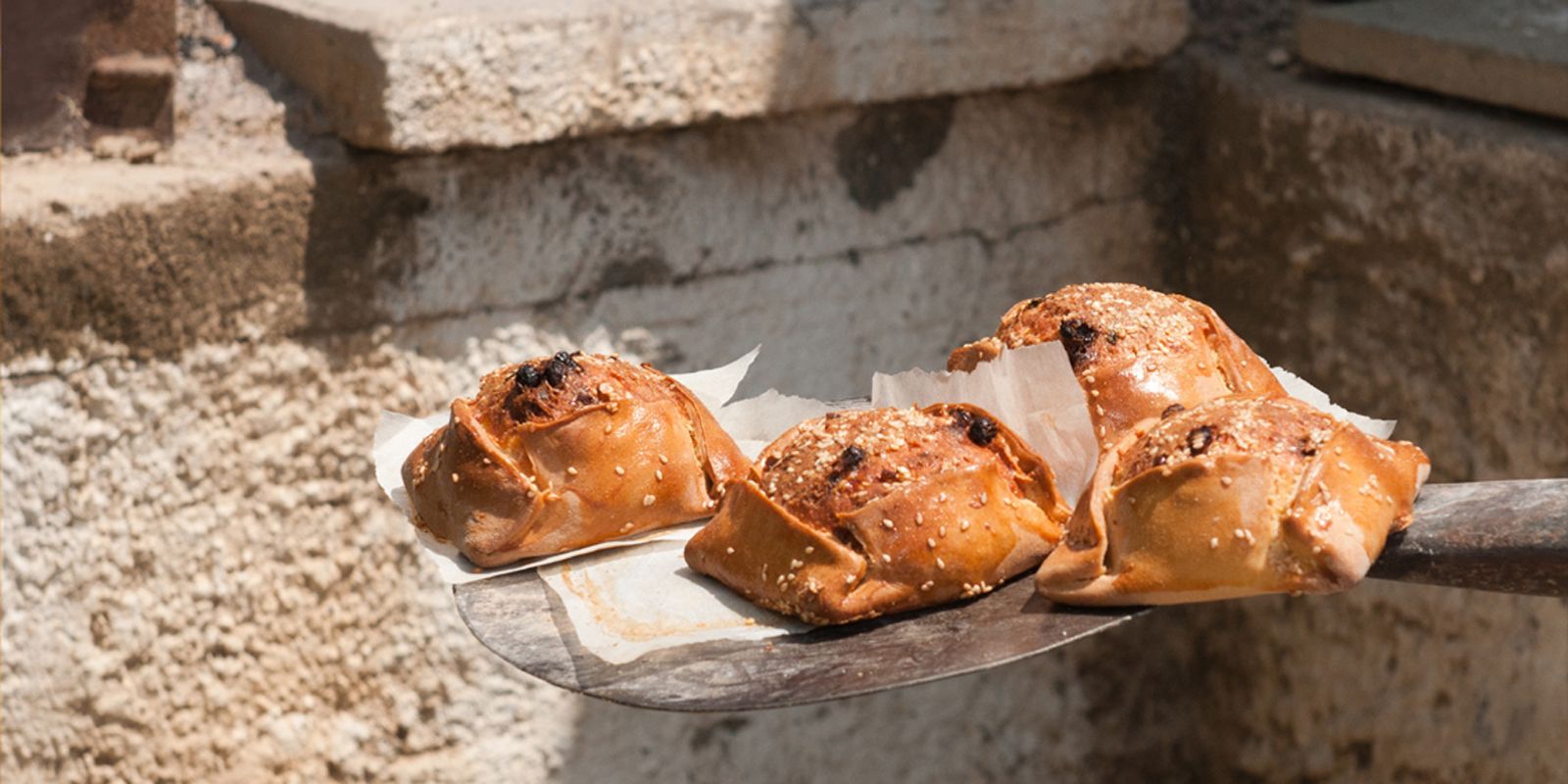
“Paschalogiorta”
“Paschalogiorta” comprises many customs that are preserved in Cyprus to this day. The main ones are the red eggs, avkotes (bagels or buns decorated with eggs) and flaounes (special cheese pies).
-
Read more
Avkotes. Very characteristic of Easter baking are the various types of bagels or buns decorated with one or more red eggs. On Holy Thursday buns and avkotes (bread-cup) were baked and eggs were dyed usually in red but sometimes in yellow. The traditional way of dyeing eggs was with onion leaves, yellow daisies, yarrow, with special seaweeds, various roots such as wild rubia also known as rizari, which were thrashed and boiled in water.
Flaounes. Holy Saturday in all of Cyprus is dedicated to kneading and baking the Easter food par excellence, the flaounes (cheese pies). Flaounes are intricately linked with Easter in Cyprus as the relevant cypriot proverb goes «no flaounes before Easter, no dowry before the wedding». The preparation for kneading the flaounes started on Holy Friday. The grated cheese was mixed with eggs, after adding proportionally the leaven, mastic, mahlep, black raisins and fresh mint. This knead is called foukos or fokos and was kneaded following a ritual. The leaven was added in a crosslike fashion to the flour at five points, as many as the nails hammered in the body of Christ.
-
Read more
-
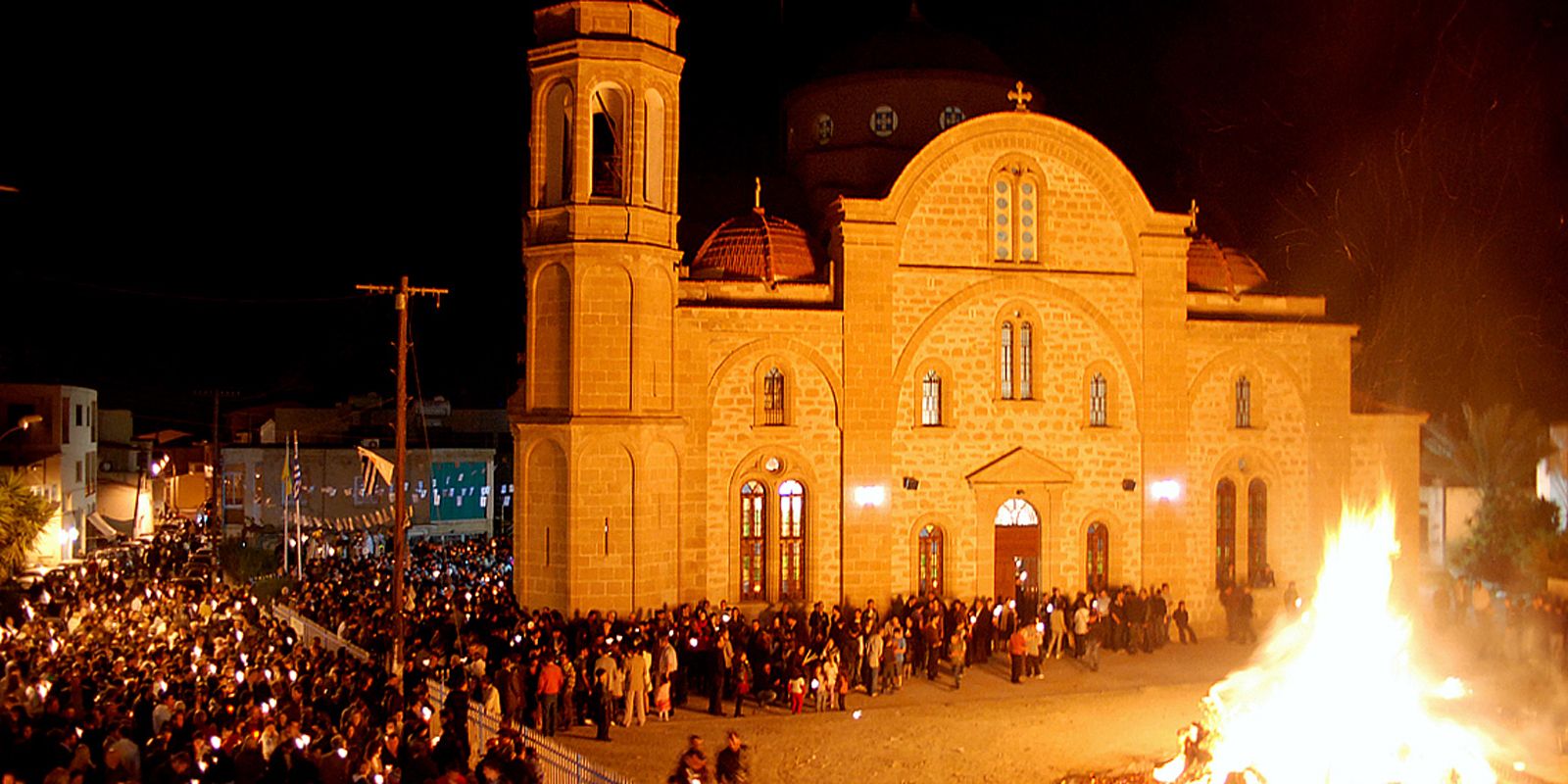
Holy Saturday
On Holy Saturday morning, during the matinal Holy liturgy, the so called “first Resurrection” takes place and in Cyprus it is celebrated in a special way. The black veils covering the icons during the Holy Week drop, the priests throw laurel leaves and myrtle to the floor, the faithful bang their pews, the bells toll merrily and the general mood is triumphant.
-
Read more
In the evening of Saturday, at midnight, the Holy liturgy of Resurrection (the “Good Word”) is held in the courtyard of churches. A huge bonfire is lit in the churchyard to burn Judas, the apostle who betrayed Jesus and if you are out and about you will see many fires all over Cyprus. There will be a few fireworks too so the night sky will be ablaze, a bit like bonfire night.
-
Read more
Easter Celebrations
-
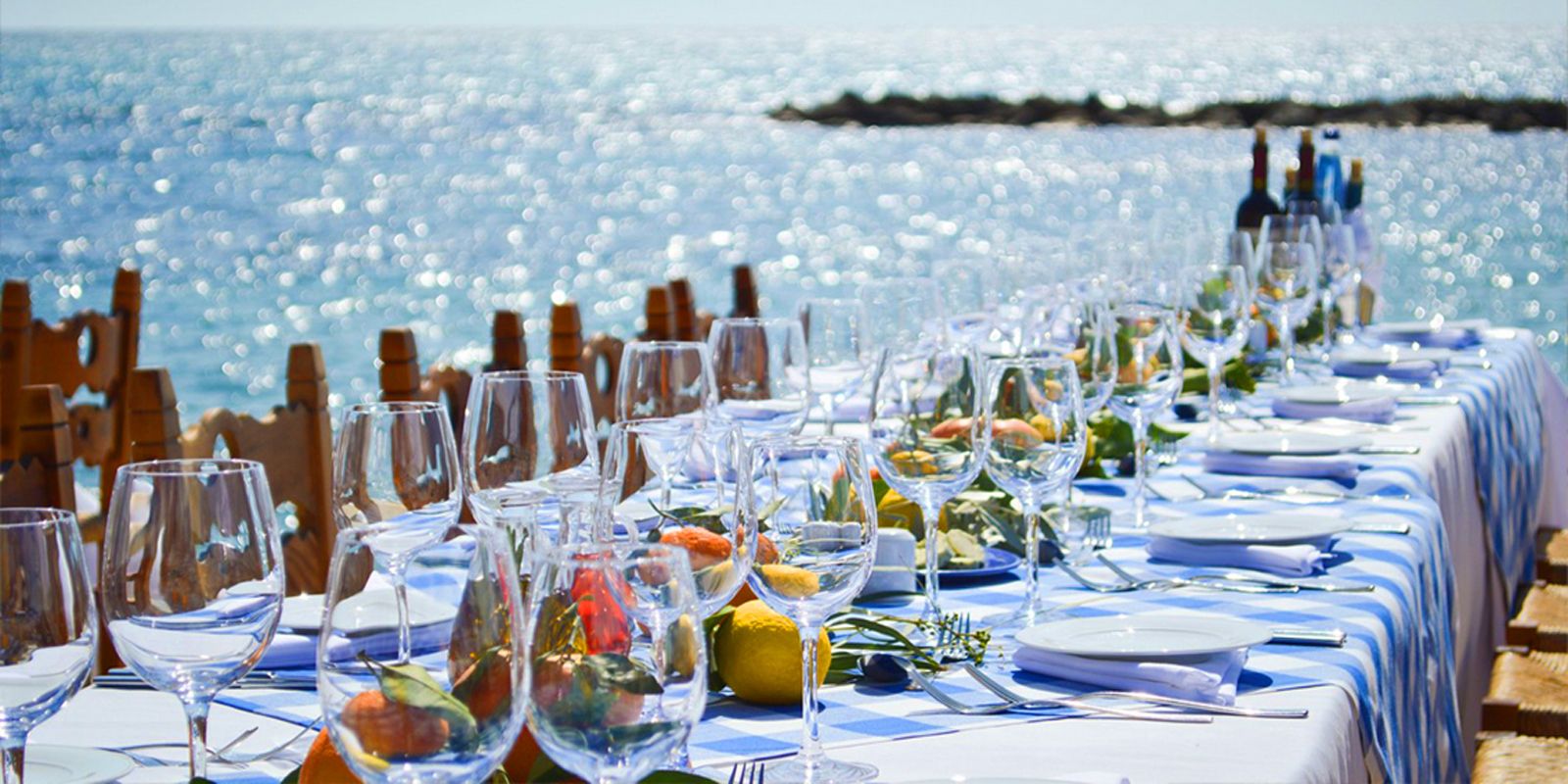
Easter Sunday
On Pascha Sunday the Vespers of Love are celebrated. All families roast on coal lamb on a spit or bake lamb in the oven, crack the red eggs and feast in large family groups. Easter Sunday is when the celebrations really begin. Feasts of souvla (large pieces of lamb or pork, or chicken are cooked on an open charcoal fire), salads, cakes, sweets, and alcoholic beverages are also on the menu! The smell of outdoor barbeques infuses the whole island! Lamb is the main traditional Easter meal as the early Christians adopted this custom from the ancient Jews who sacrificed lambs for their Passover celebrations. -
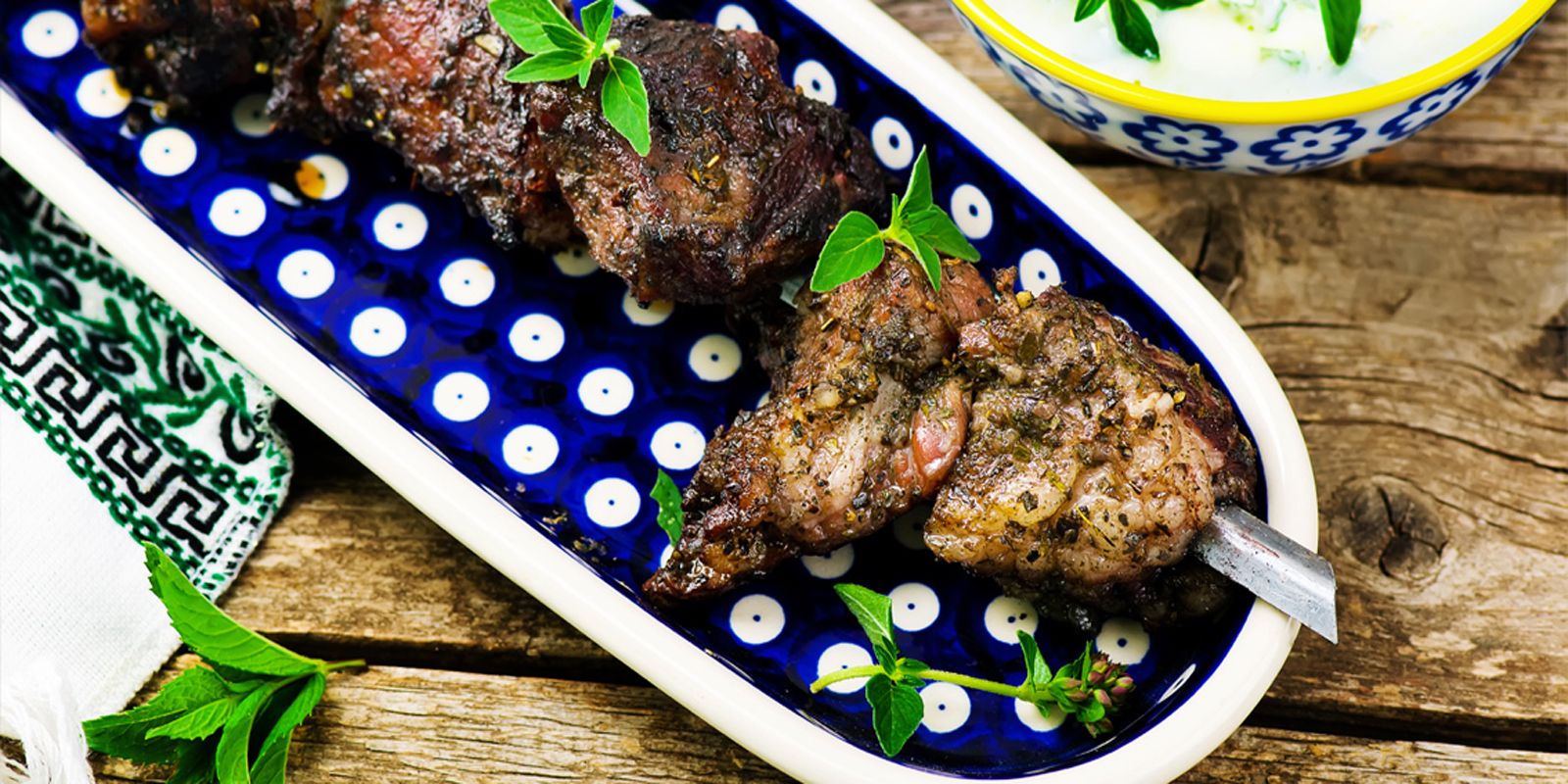
Feasts of Souvla
Easter Sunday is when the celebrations really begin. Feasts of souvla (large pieces of lamb or pork, or chicken are cooked on an open charcoal fire), salads, cakes, sweets, and alcoholic beverages are also on the menu! The smell of outdoor barbeques infuses the whole island! Lamb is the main traditional Easter meal as the early Christians adopted this custom from the ancient Jews who sacrificed lambs for their Passover celebrations. -

Traditional Games
From Sunday lunchtime until Tuesday night, in village squares and churchyards, games and traditional Cypriot music is the order of the day. Everyone – Cypriot and foreigners – is welcomed and usually greeted with an enthusiastic, Christos Anesti (Christ is Risen!) or Kopiaste (Welcome!) Or Chronia Polla (may you have many years!)
 Cities/District
Cities/District Monasteries
Monasteries Unesco Churches
Unesco Churches Food & Drink
Food & Drink  Limassol to Nicosia
Limassol to Nicosia Famagusta to Machairas
Famagusta to Machairas Kourion to West Akamas
Kourion to West Akamas Hotels
Hotels Villas
Villas Agrotourism Accommodations
Agrotourism Accommodations Flights
Flights Rent a Car
Rent a Car